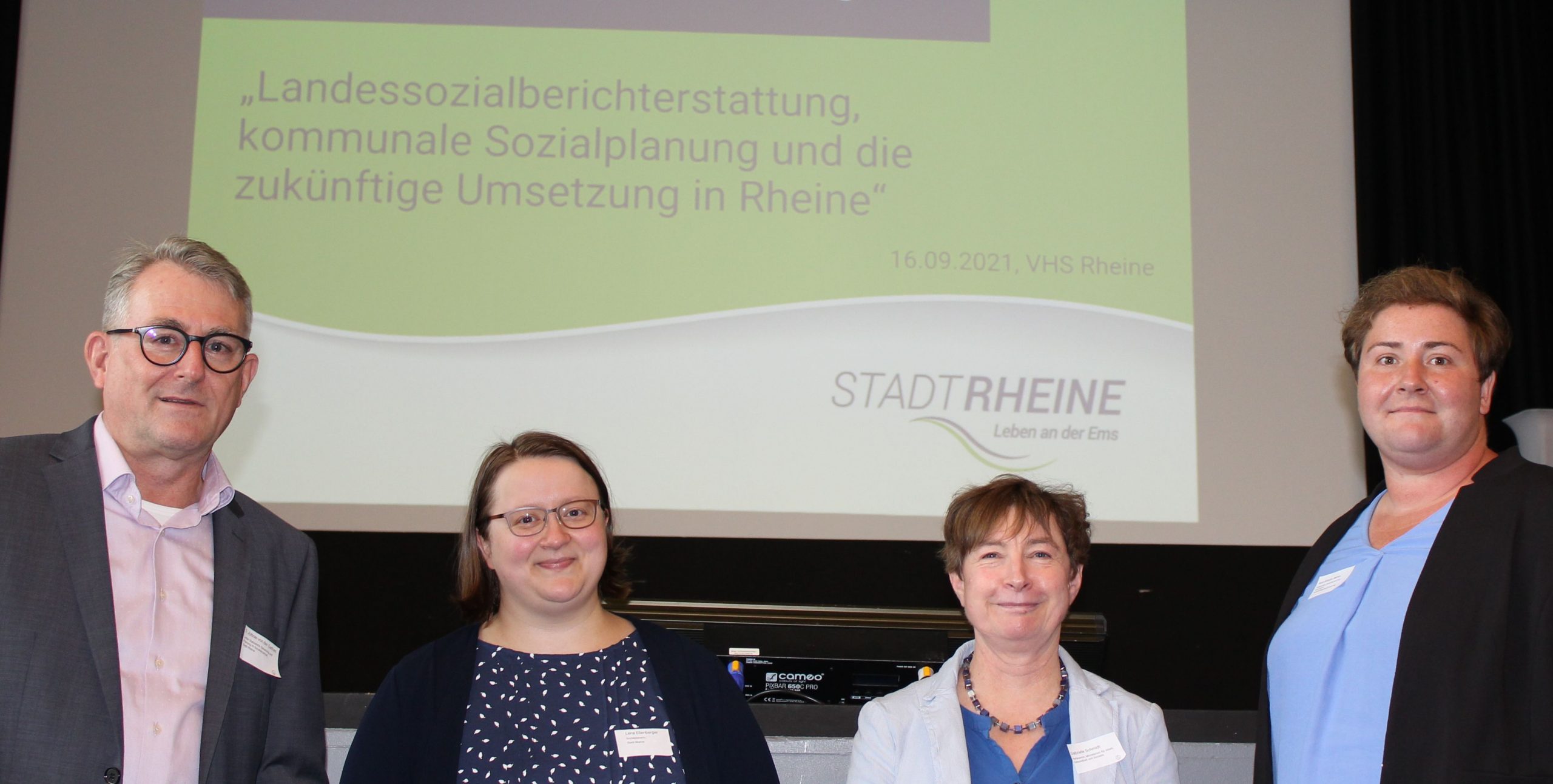Stefan Jüttner-von der Gathen, Lena Ellenberger, Gabriele Schmidt, Ann-Kristin Reher (v.l.)
“State social reporting, municipal social planning and the future implementation in Rheine”, an unwieldy working title that was dealt with in an information event of the social department on 16 September. About 50 people from the social committee, the advisory councils, from the voluntary welfare organisations as well as with expert planners from the city of Rheine took part to discuss tasks and goals of municipal social planning and thus better participation opportunities and equal living conditions for all citizens in Rheine.
“Social planning provides us with important information and criteria for strategic goal orientation in our city” emphasised Mayor Dr Peter Lüttmann in his opening speech. Gabriele Schmidt from the Ministry of Labour, Health and Social Affairs of North Rhine-Westphalia clarified that the state only takes a closer look at the district of Steinfurt in comparison to the other districts and independent cities in the NRW Social Report. This makes it all the more important to compile a separate social report for Rheine with the city-specific social living conditions.
Ann-Kristin Reher from the Gesellschaft für innovative Beschäftigungsförderung (Society for Innovative Employment Promotion) explained how the social report fits into the basic concept and understanding of strategic integrated social planning. She made it clear that social planning is both a bracket and a motor for combating poverty.
In a further step, the new social planner, Lena Ellenberger, explained what social planning in Rheine should look like in practice. The aim is to prepare and update a social report for Rheine every year with basic analyses and changing focal points. “The content of this social report should not be pure statistics and columns of figures, but should be provided with strategic and concrete proposals for measures,” Lena Ellenberger explained.
The role of the social committee, the expert planners of the city of Rheine as well as the representatives of the independent welfare organisations in the social planning process was outlined in the schedule for the next few months. In the First Social Report Rheine 2022, the focus is on housing. The central objective is therefore to create affordable housing that meets the needs of different population groups. Particular support is to be given to those who have already been affected by housing shortages or who live with a restriction or disability. Single people and senior citizens who may be at risk of loneliness, as well as single parents (in over 90 per cent of cases women) with children under 6 years of age, should also receive attention in this social report. Concrete proposals should also help to offer help to these population groups.
In moderated small groups, the objectives presented in advance were discussed and new perspectives and ideas were introduced. For example, the survey of vacancies near the city centre and their conversion into living space were also mentioned as further needs for action. More public housing, decent housing for all and special forms of housing that are promoted were further suggestions. With regard to social disadvantage and lack of participation, more free services for citizens in Rheine were also generally desired.
“We succeeded in bringing together the decisive people for a successful implementation of social planning in the city of Rheine this evening and in kicking off the process,” said Stefan Jüttner-von der Gathen, Head of Steering and Planning in the Social Department. Finally, Wiebke Gehrke, Head of the Department of Schools, Social Affairs, Migration and Integration, thanked all participants for their keen interest and good ideas.
